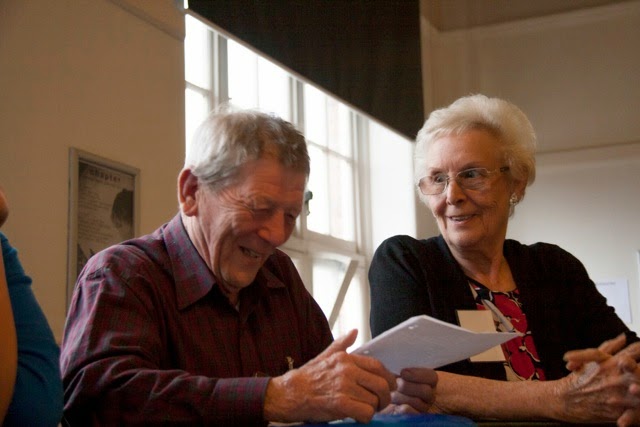Last night was opening night of Memoria. For the last six
weeks everyone involved has been working hard to create an experience we can
all be proud of.
There were a lot of nerves, for those on and off stage. There was also a lot of excitement to share our work with our live and online
audiences that cover the globe.
But of course a production that involves a group of people
talking about their experiences of dementia doesn’t sound like the most jolly
or entertaining evening out at the theatre.
It would be easy for this show to be all doom and gloom or a
lecture about how not enough is being done to help those with a dementia
diagnosis and their loved ones.
Re-Live do hope to raise awareness about the many different
forms of dementia and hopefully encourage those with the means to fund more
research and support. But essentially the production will explore the reality
of living with dementia. The everyday challenges and amusements.
Just like everybody else, people with dementia have good
days and bad days.
 |
| Our musician James and some of the cast in rehearsal |
If there was more awareness about the changes dementia can
cause in a person then as a society we could be more tolerant, more supportive
and much more inclusive. Care homes and hospitals can provide the best care if
they get to know a person’s individual needs. There could be a lot more hope
for everyone.
Last night was completely sold out and we had a great online audience who shared their thoughts via Twitter. We have two more shows and we would love for you to join us.
You might learn something or have your assumptions challenged. You may relate to some of the stories the group share. But if you see this show I promise you will be moved by what you see and hear.
Throughout rehearsals we have cried, all of us. But we have
laughed a lot more. Come and share these
emotions and get a glimpse into the incredible lives of the people who are
brave enough to share their stories with you.
Some of the great feedback from last night's live and online audiences:
“It’s honest and touching”
“There’s real emotion and power”
"A powerful and moving production""Inspiring self advocacy that needs to be heard, was proud to be in the audience"



